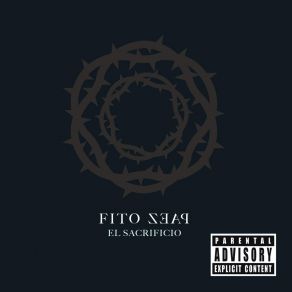El Sacrificio
Download links and information about El Sacrificio by Fito Páez / Fito Paez. This album was released in 2013 and it belongs to Alternative Rock, Latin genres. It contains 10 tracks with total duration of 44:17 minutes.

|
|
|---|---|
| Artist: | Fito Páez / Fito Paez |
| Release date: | 2013 |
| Genre: | Alternative Rock, Latin |
| Tracks: | 10 |
| Duration: | 44:17 |
| Buy it NOW at: | |
| Buy on iTunes $8.99 | |
| Buy on Amazon $8.99 | |
Tracks
[Edit]| No. | Title | Length |
|---|---|---|
| 1. | El Sacrificio | 4:15 |
| 2. | Esto Podría Haber Sido una Canción | 5:22 |
| 3. | Guerra de Luz | 4:55 |
| 4. | Mouchette | 3:01 |
| 5. | El Fantasma Caníbal | 4:46 |
| 6. | No la C*****es Buey | 3:22 |
| 7. | El Mal Vino y la Luz | 4:53 |
| 8. | Inglaterra | 4:34 |
| 9. | El Dolor | 4:27 |
| 10. | La Puta Diabla | 4:42 |
Details
[Edit]Fito Páez turned 50 in 2013 and took the opportunity to both reconnect with his past and look to the future. As part of a hectic schedule that included a tour to celebrate the 20th anniversary of his most successful record, El Amor Después del Amor, the publishing of his first novel, and announcements of upcoming albums and films, he also saw fit to release El Sacrificio, his first rarities collection. The ten songs included here were originally recorded between 1989 and 2013, but Páez deemed the material too dark or too personal for commercial release, which is why he likes to think of this compendium as "his black album." El Sacrificio is thus not exactly a rarities anthology, but an album made out of thematically linked leftovers, which may account for its conciseness — presumably Páez has amassed a lot more than ten outtakes over the past 23 years. At any rate, people hoping for another Ciudad de Pobres Corazones, his 1987 masterpiece which shocked listeners with its aggressive, nihilistic stance, are in for a disappointment. For all of its violence and despair, the songs of Ciudad were precise rock punches made of riffs, choruses, and to-the-point lyrics. El Sacrificio, on the other hand, is largely composed of the kind of rambling narratives that Páez seems to enjoy quite a lot (although the same probably can't be said of his fans!) such as "Sasha, Sissí y el Círculo de Baba" or "La Casa Desaparecida," but that he wisely keeps down to one or two tracks per album, as these tend to clutter the flow. In fact, it is perhaps more accurate to consider El Sacrificio a preamble of sorts to his first novel — which, coincidentally or not, bears the same title as the last song on this record, "La Puta Diabla" — a collection of tracks in which Páez lets his literary pretensions run free, mostly in the form of either short stories ("El Mal Vino y la Luz," "El Fantasma Caníbal") or personal rants ("Guerra de Luz," "No la C*****es Buey"), all peppered with constant name-dropping. This literary tendency may also account for the scarcity of melodies, as most lyrics are spoken rather than sung, culminating in the excruciating spoken monologue of "El Dolor," which seems a hell of a lot longer than its noted four-and-a-half minutes. The album also includes two stabs at rap, the above mentioned "Guerra de Luz" (perilously close to Raul Seixas' "Ouro de Tolo") and "No la C*****es Buey," which sounds exactly like Páez's own version of Andrés Calamaro's "Mi Funeral 11" from El Salmón, an album — or rather, a grand, excessive gesture of personal exorcism — which was presumably greatly appreciated by his friend Páez. In this context, it should not be surprising that the delicate ballads "Esto Podría Haber Sido una Canción" and "Mouchette," the two tracks on the album closer in structure to a standard pop song, stand out as El Sacrificio's finest moments. While the liner notes acknowledge the presence of Páez's regular musicians on these recordings, most of this material sounds like Páez alone in the studio with his keyboards, layering a foundation to sing on top of it, complete with synthesized strings and a drum track. These are fully realized demos, but certainly not full-fledged band arrangements. In short, El Sacrificio is an album that would only appeal to hardcore Páez fans, who could spend a considerable amount of time trying to decipher all the references, guessing when exactly these songs were originally written, and where each one fits into Páez's convoluted musical and personal biography. Páez himself recognized this, as El Sacrificio was first freely distributed to those who attended his Buenos Aires concerts in March 2013.